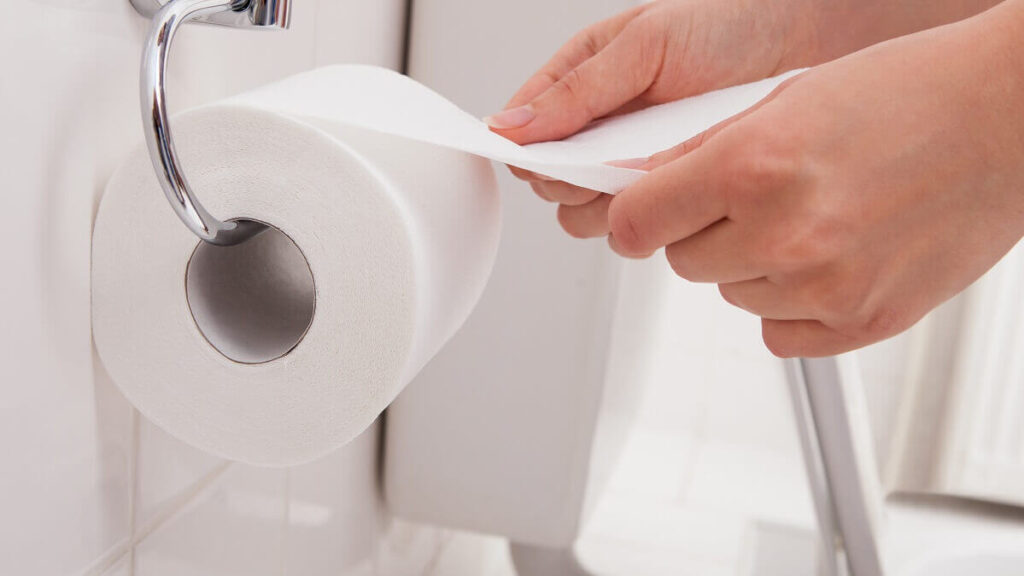The majority of us don’t pay any attention to the comings and goings of our bladder, but it turns out you may be sending very important health information down the toilet.
Blood in urine is a key symptom of bladder and kidney cancer, yet only 16 per cent of those most at risk – aged 50 and over – check the colour of their urine every time they go to the toilet. According to experts, blood might not appear every time, so it’s important that people seek medical help even if they notice it just once.
Worryingly though, around half (47 per cent) of those polled by Public Health England said they wouldn’t see their GP if they saw blood in their urine just once, with 45 per cent saying they would wait and see if it happened again – potentially delaying a vital diagnosis.
Should I be worried about finding blood?
Yes and no. Seeing blood in your urine does not always mean you have bladder cancer. More often it is caused by other things such as an infection, benign tumours, stones in the kidney or bladder, or other benign kidney diseases.
However, it’s important to have it checked by a doctor in the first instance, so the cause can be found because, according to Cancer Research UK, 80 per cent of bladder cancer patients have reported finding blood in their urine.
What are the other signs of bladder and kidney cancer?
Usually, the early stages of bladder cancer cause bleeding but little or no pain or other symptoms – which is why it’s important to see your GP if this sign appears.
Bladder cancers that have grown large enough, or have spread to other parts of the body, can sometimes cause other symptoms, such as being unable to urinate, lower back pain on one side, loss of appetite and weight loss, feeling tired or weak, swelling in the feet and bone pain.
Symptoms of bladder cancer
- blood in the urine (haematuria)
- change in urination patterns
- pain when urinating (dysuria)
- needing to urinate frequently
- burning sensation when urinating (dysuria)
- incontinence
- urinary tract infections that don’t respond to antibiotics
- abdominal pain
- lower back pain
- weight loss
- tiredness.
Be aware, in its early stages, kidney cancer often does not produce any symptoms.
Symptoms of kidney cancer
- blood in the urine
- passing urine frequently or during the night
- change in urine colour – dark, rusty or brown
- pain or a dull ache in the side or lower back that is not due to an injury
- a lump in the abdomen
- constant tiredness
- rapid, unexplained weight loss
- fever not caused by a cold or flu.
These symptoms can occur with other illnesses, so they don’t necessarily mean you have kidney cancer. If you have any concerns, contact your doctor.
According to Cancer Research UK, blood in the urine is the most common symptom of kidney cancer. About 50 per cent of people diagnosed with kidney cancer have it when they first go to the doctor. The blood can make the urine turn a bright red colour, although, on rare occasions, it can turn a dark brown.
It can come and go and, sometimes, it cannot be seen by the naked eye – but it can be picked up by a simple urine test at your doctor’s surgery.
Check with your GP
As the cancer progresses, you may feel a lump or swelling in the area of your kidneys. If this occurs, you should go straight to your doctor.
Some people have other symptoms, which can be vague, such as weight loss, a high temperature, pain in their back on one side that won’t go away, tiredness, loss of appetite and a general feeling of poor health.
However, it’s important not to panic, as these symptoms can be caused by many other conditions. Most people who have them will not have cancer, but it’s worth getting them checked out. If it is cancer, it will be easier to treat if it’s caught early.
If you’re worried at all, always speak to your GP.
Would you talk to your GP if your found blood in your urine? Do you book an appointment with your GP when you notice changes in your body, or do you tend to wait things out? Share your thoughts in the comments section below.
Also read: Cancer symptoms you should never ignore, according to specialists
– With PA
Disclaimer: This article contains general information about health issues and is not advice. For health advice, consult your medical practitioner.

